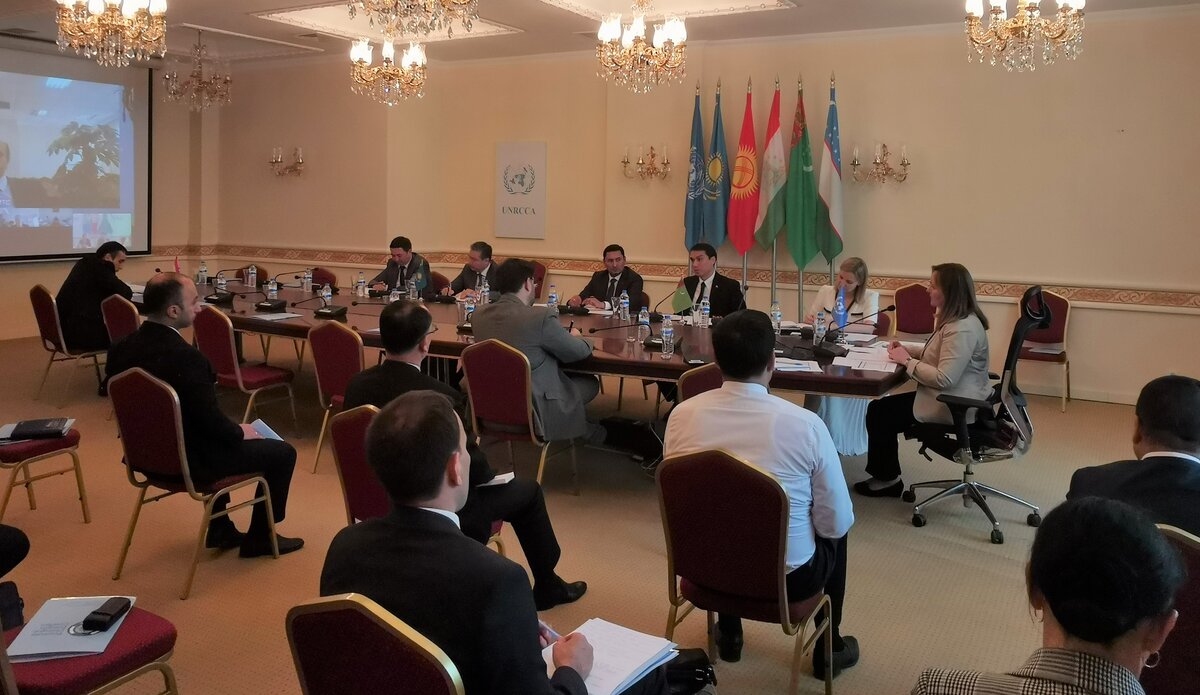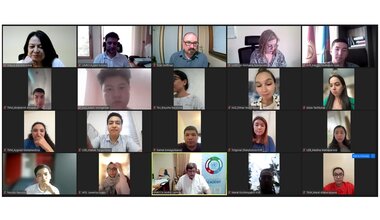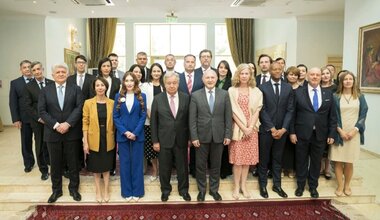UNRCCA CONVENES FIRST ONLINE MEETING WITH INSTITUTES OF STRATEGIC STUDIES AND OTHER STATE INSTITUTIONS OF CENTRAL ASIA
ASHGABAT, Turkmenistan
On 4 June 2020, the United Nations Regional Centre for Preventive Diplomacy for Central Asia (UNRCCA) in partnership with the United Nations Office for Counter-Terrorism - United Nations Counter-Terrorism Centre (UNOCT-UNCCT) convened regional online consultations with the Institutes of Strategic Studies and other state institutions of the Central Asian states to discuss the impact of the COVID-19 pandemic on preventing violent extremism and countering terrorism. Under Secretary-General, Vladimir Voronkov, and the Assistant Secretary-General, Miroslav Jenca took part in the online meeting.
In her opening statement the Special Representative of Secretary-General for Central Asia, Natalia Gherman, pointed out that “while the world is focused on COVID-19, other challenges to peace and security have not disappeared. Issues related to violent extremism and terrorism could become even more pressing in the post-pandemic era, and we have to be prepared for different scenarios and preventive measures”.
Participants expressed concerns with regard to the economic and social consequences of the pandemic, which could create more conditions conducive to spreading extremist ideologies and recruitment by terrorist groups. It was noted that more efforts need to be taken to prevent growing online influence on youth and other vulnerable groups. Participants proposed a number of preventive activities to mitigate these negative consequences, including through closer regional interaction and mutual support. The discussion also focused on activities under the UNRCCA and UNOCT-UNCCT multiyear project on the implementation of the UN Global Counter-Terrorism Strategy in Central Asia and how these activities could be adjusted to the current environment.
Additionally, participants used the opportunity to briefly discuss broader issues related to peace, security and development in the region, which could be further developed at the next expert forum conducted within the preparatory framework for the annual Summit of Central Asian states under the chairmanship of Kyrgyzstan in 2020.
 UN
UN




